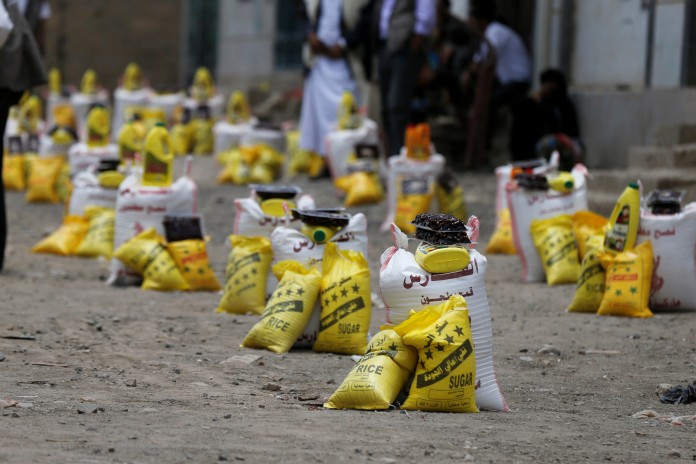
Al-Thawra Net
As civil war engulfs Yemen, the Central Bank of Yemen (CBY) is so committed to staying neutral that it pays salaries of soldiers on both sides.
The bank distributes money to public-sector workers in all areas under attack; however, the areas under Saudi mercenaries or Ansarullah control. Also CBY guarantees payments for vital grain and flour imports.
“Central banks play an important role in many economies but in Yemen, which has been plagued by a war for more than a year, it is keeping the country from financial collapse and the population from running out of food,” Reuters reported last week.
CBY is based in the capital Sana’a, which isn’t even controlled by Hadi government, represents the last bastion of the financial system in the impoverished country and is effectively running the economy, according to central bank officials, foreign diplomats and Yemeni political sources on both sides of the war.
Reuters’ sources said “Its independence is not just an institutional need; to safeguard imports and forestall a looming famine, international lenders and traders must have confidence in the bank’s ability to manage Yemen’s riyal currency and foreign exchange reserves free of political interference.”
The country relies on imports for 90 percent of its food, but shipments have been falling since the war began; 21 million out of its 28 million people need some form of humanitarian aid and over half the population suffer from malnutrition, according to the report.
“It’s fair to say the central bank is certainly serious about being neutral in a very difficult political and security setting, and it has been to a large extent successful in maintaining basic financial stability throughout the conflict,” said the IMF Mission Chief for Yemen, Albert Jaeger.
The bank also sends money to the port of Aden – declared the “temporary capital” by the government – to pay doctors, teachers and some soldiers in Hadi government-run areas in southern and eastern Yemen, the CBY sources, diplomats and political sources said.
Though no civilian flights fly the same route, every few weeks a plane from state airline Yemenia flies several million dollars in riyals from the central bank in Sana’a to Aden in the south, they added.
Central bank sources declined to be named as they are not authorized to speak publicly. A spokesman for the central bank said it had decided not to conduct interviews during the crisis.
The diplomats and political sources also asked to remain anonymous, citing the sensitivity of the situation.
The report pointed out that much of the credit for the central bank’s survival lies with Mohammed Bin Humam, its 69-year-old governor who has cordial ties to both sides in the civil war.
When the Gulf Arab alliance intervened in Yemen, Hadi and many of his ministers fled to luxury guesthouses in Riyad, Bin Humam stayed in Sana’a.
According to Reuters, diplomats and central bank officials say an unwritten “economic truce” was agreed between the warring sides by which the CBY would remain free of political interference to avert economic collapse.
When government forces retook Aden from Houthi forces in July 2015 and Hadi pledged to set up a temporary capital there, uncertainty spread over whether the CBY would shift base. Bin Humam then suddenly left Sana’a.
“In Sana’a people thought he defected,” a senior Yemeni security official told Reuters.
“He travelled to Saudi Arabia and met government officials there. He received guarantees that the neutrality of the bank would still be respected. Then when he returned, they greeted him like a hero.”
Despite efforts to shore up the economy, the central bank may be running out of options.
Yemen faced daunting economic challenges even before the war, but had one saving grace: oil. Its energy industry accounted for 80 percent of its state budget and nearly half of the inflow of foreign currency.
But exports stopped over a year ago and foreign companies have pulled out; the country’s largest oil export terminal was only wrested back by the government from al Qaeda fighters in late April and its main natural gas port is still in territory under the sway of the militants.
With little means of replenishing its foreign exchange reserves, the central bank has burned through its dollars to pay for imports and keep up Yemen’s foreign debt obligations.
The reserves have fallen to around $1.1 billion from $4.7 billion at the end of 2014. The IMF put them at well below two months’ of imports, which it told Reuters was “very, very low”.
“Economic collapse is a genuine, imminent threat,” a European diplomat said to Reuters, adding that only a swift peace deal in floundering U.N.-backed talks in Kuwait may forestall disaster.
















